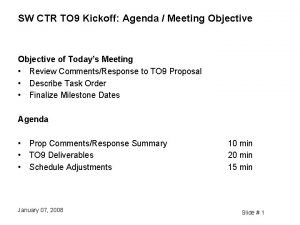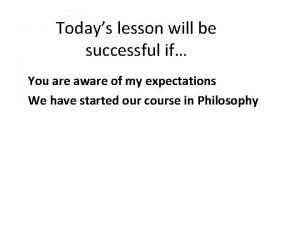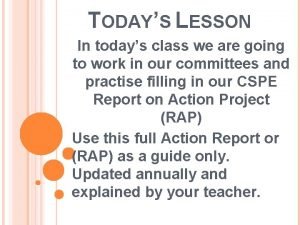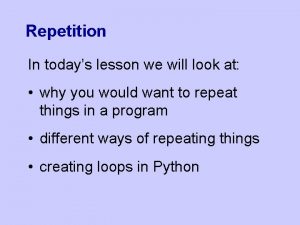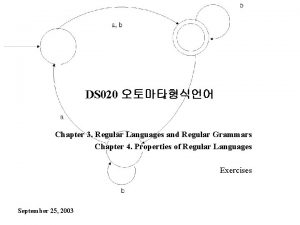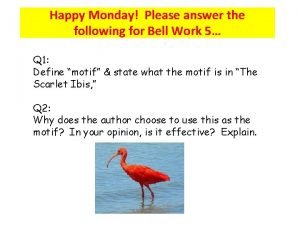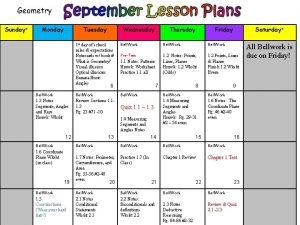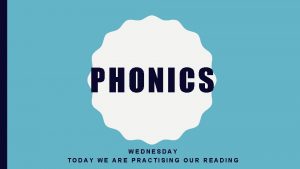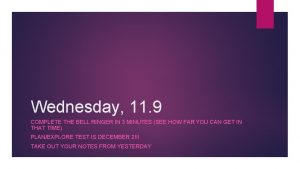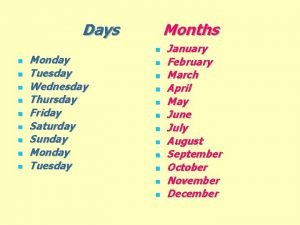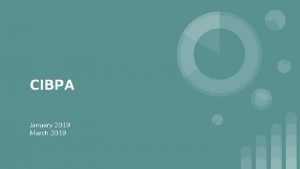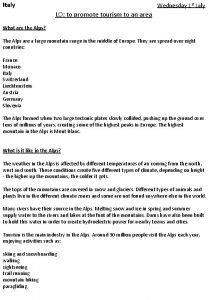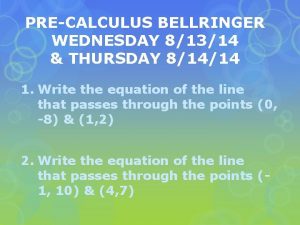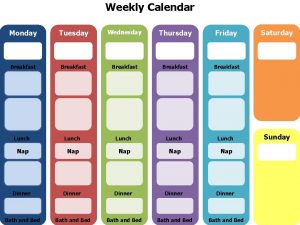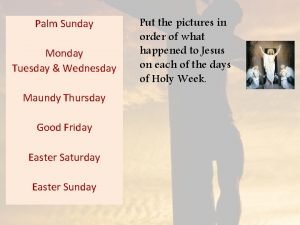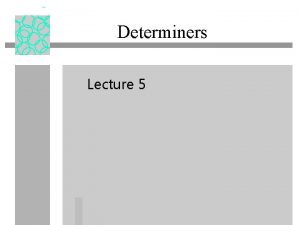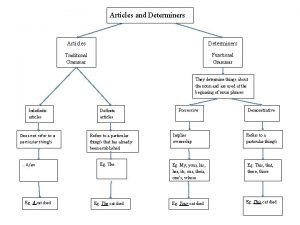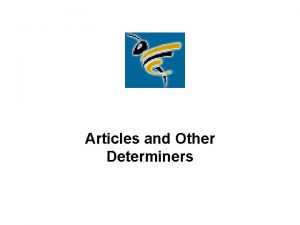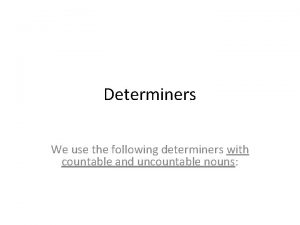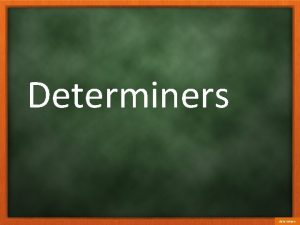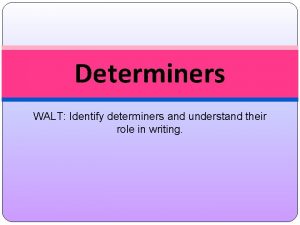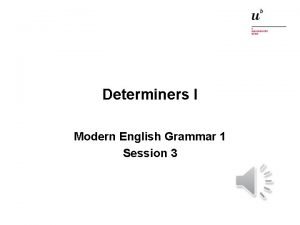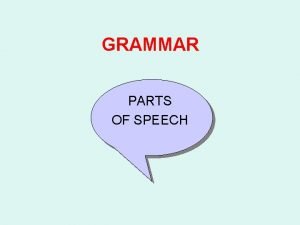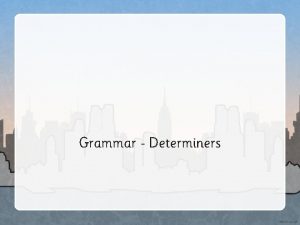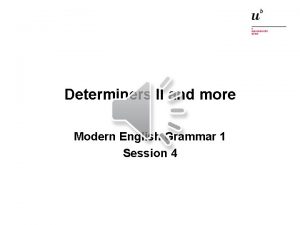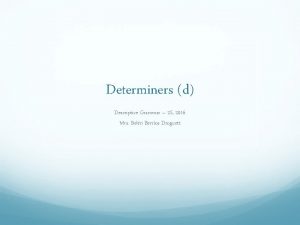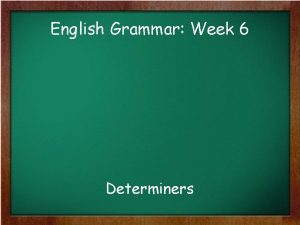Wednesday 29 Grammar th April Determiners Today we



























- Slides: 27

Wednesday 29 Grammar th April

Determiners Today, we are going to recap what we learnt last week in our grammar lesson and delve a little deeper into determiners.

Determiners �Determiners are one of the eight main word classes. �You will always find a determiner before a noun (unless an adjective sneaks in first!) �For example: Children is a noun – it is the name of a group of young people. The children went outside. The is a determiner – it introduces the noun.

Determiners �There are five main types of determiner. All introduce nouns but each has a slightly different role: Type of Role Determiner Articles Show whether the noun being referred to is general or specific. Demonstratives Interrogatives Possessives Quantifiers Tell you which noun Ask which noun Show who the noun belongs to. Specify how many It may seem tricky but don’t panic! The most important thing is that you can recognise determiners.

Articles

Articles �Articles are the most common determiner and the easiest to recognise. �There are only three articles: a, an and the. Article Type a / an Indefinite article the Definite article Used. . . When the person or thing being introduced is general or has not been mentioned before (unknown). When you are talking about something specific which has already been mentioned

Demonstratives

Demonstratives �Demonstratives tell you which noun is being referred to. �They are the words you might say when pointing to something you’d like. Cupcake is a noun �For example: Can I have that cupcake? That is a demonstrative – it specifies which one.

Demonstratives Can you identify the demonstratives in these sentences? �Would you prefer this pair of Nikes or those new Adidas trainers? �“Could Jack and I please have these raspberry doughnuts for pudding? ” asked Lyra politely. REMEMBER: An adjective may sometimes sneak in between the noun and the determiner.

Interrogatives

Interrogatives �To interrogate someone means you ask them lots of questions. . . �Interrogative determiners ask which noun is being referred to. Sandwich is a common noun �For example: Which sandwich would you like? Which is an interrogative determiner – it helps specify which one, out of a range of sandwiches, is being referred to.

Interrogatives �There are three main interrogative determiners: Interrogativ e Determiner Which What Whose Example Which sandwich would you like? What is for dinner? Whose. P. E. PE kitisisthis? ***BE CAREFUL*** Don’t confuse whose with who’s this is a contraction of who is and NOT a determiner!

Possessive Pronouns

Possessive Pronouns �Although pronouns have their own separate word class, possessive pronouns can also sometimes act as determiners. �The possessive pronouns are: r e h my its their your his our

Possessive Pronouns �Possessive pronouns tell you what or who something belongs to. �For example: The is a definite article – it identifies the particular animal we are talking about. Can you spot th e other determin er in this example? The gorilla itched his nose. His is a possessive – it shows that the nose belongs to the gorilla.

Possessive Pronouns Can you identify the possessive pronouns acting as determiners in these sentences? �Our puppy is coming home on Saturday. �Come and look at my new scooter! � Hattie and Keira forgot their swimming kit. �James accidently dropped his homework in the mud.

Quantifiers

Quantifiers �Quantifiers tell you how many of something is being referred to. �For example: Pancakes is a noun Georgia ate four pancakes! Four introduces the noun and also tells you the number (quantity) of pancakes Georgia ate.

Quantifiers Can you identify the quantifiers in these sentences? �Would you like some sugar in your tea? REMEMBER A quantifier comes before a noun and tells you how much or how many. Would you like some sugar in your tea? �Please collect in every pencil. � I bought three croissants and five Danish pastries �Each pupil received a scented sticker.

Let’s try some questions together. This and that are demonstrative determiners.




Some and four Would need the noun to plural. . elephants.


You could have used any nouns that make sense here. These are my examples.

Now complete today’s grammar activity. Remember, if you can’t print them off, just complete the answers in your green work book.
 Meeting objective
Meeting objective Today lesson or today's lesson
Today lesson or today's lesson Today meeting or today's meeting
Today meeting or today's meeting Today's lesson or today lesson
Today's lesson or today lesson We have class today
We have class today Today's lesson or today lesson
Today's lesson or today lesson Right linear grammar to left linear grammar
Right linear grammar to left linear grammar Convert left linear to right linear grammar
Convert left linear to right linear grammar What are the characteristics of traditional grammar
What are the characteristics of traditional grammar Types of grammar
Types of grammar Response to happy monday
Response to happy monday Tuesday bell work
Tuesday bell work Flmsg download
Flmsg download Wednesday phonics
Wednesday phonics Wednesday bell ringer
Wednesday bell ringer Monday tuesday wednesday thursday friday saturday sunday
Monday tuesday wednesday thursday friday saturday sunday May 2019 ib grade boundaries
May 2019 ib grade boundaries Good morning happy february
Good morning happy february Wednesday
Wednesday Wednesday lo
Wednesday lo Happy wednesday
Happy wednesday Thursday bellringer
Thursday bellringer Wednesday bellwork
Wednesday bellwork Monday wednesday saturday
Monday wednesday saturday Monday tuesday wednesday thursday friday calendar
Monday tuesday wednesday thursday friday calendar Tuesday-sunday
Tuesday-sunday Wednesday syllables
Wednesday syllables English class is wednesday
English class is wednesday
